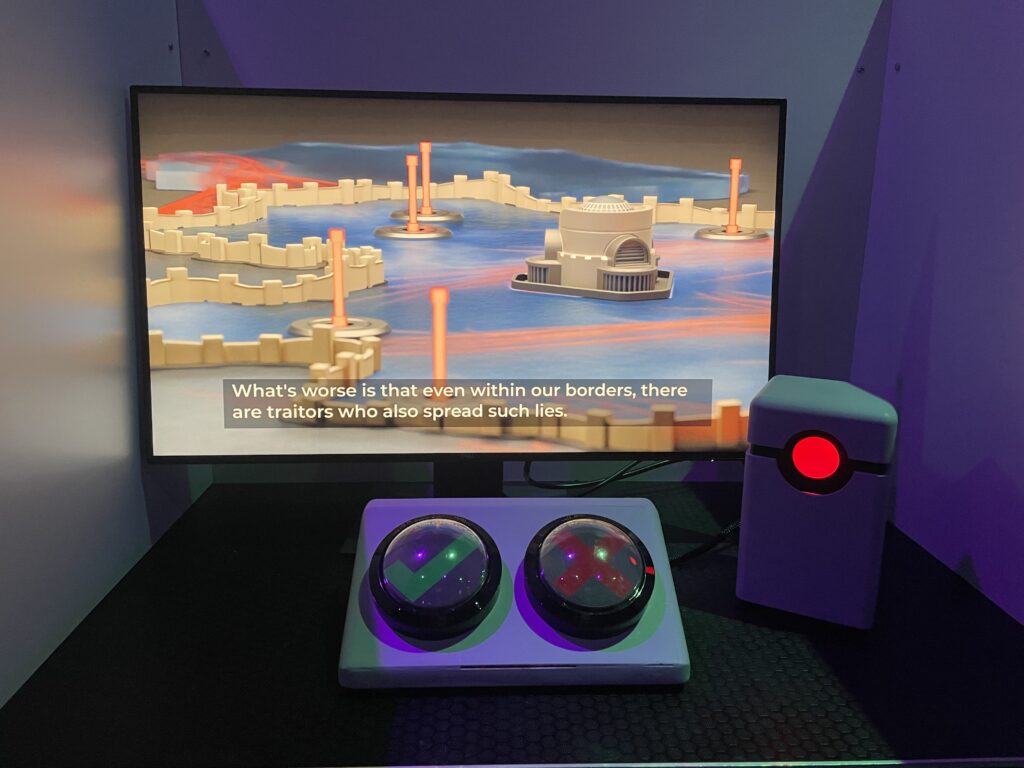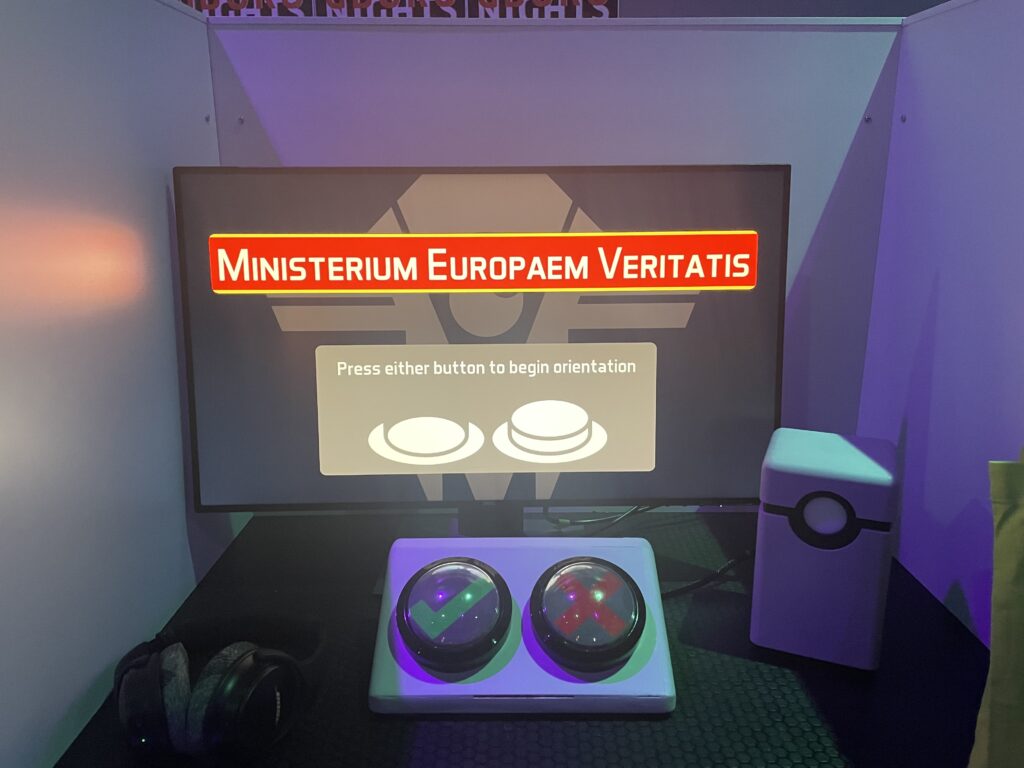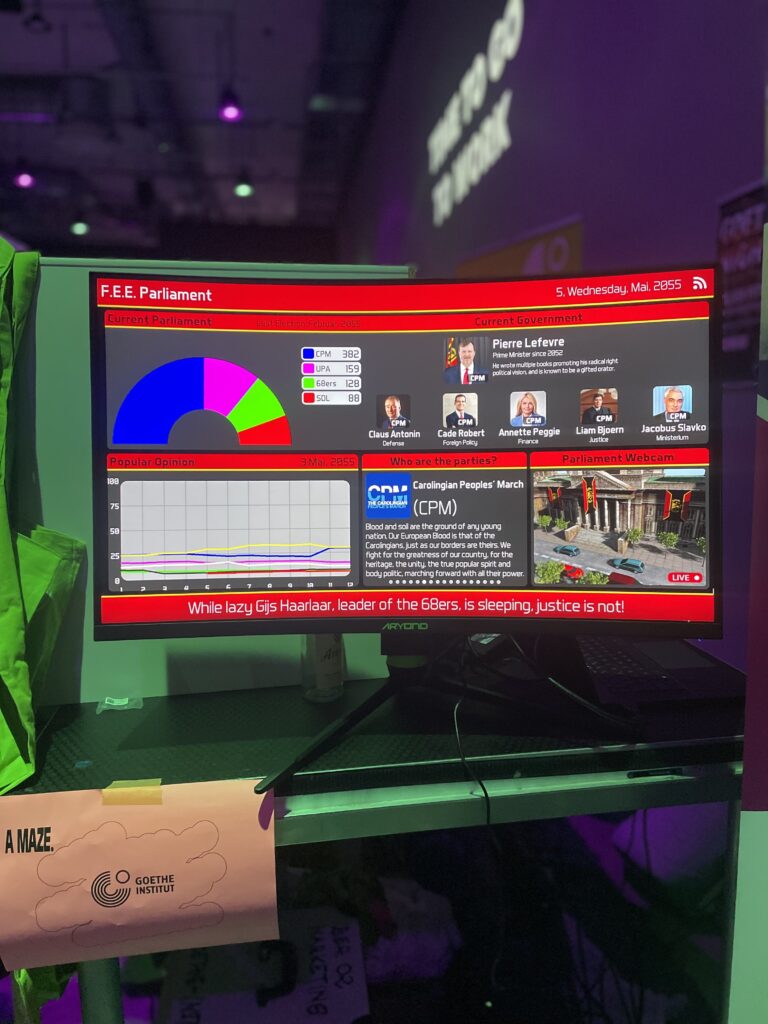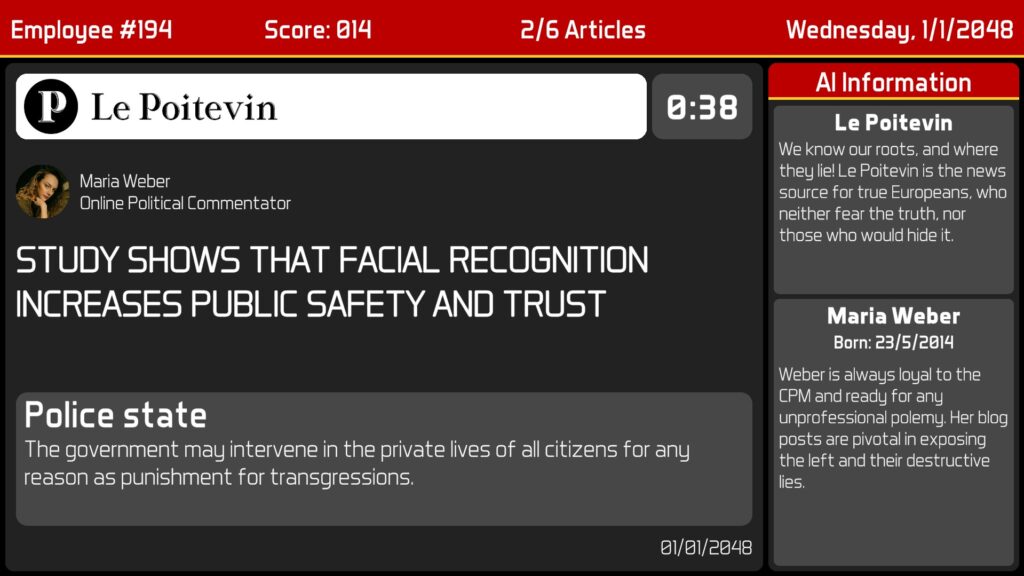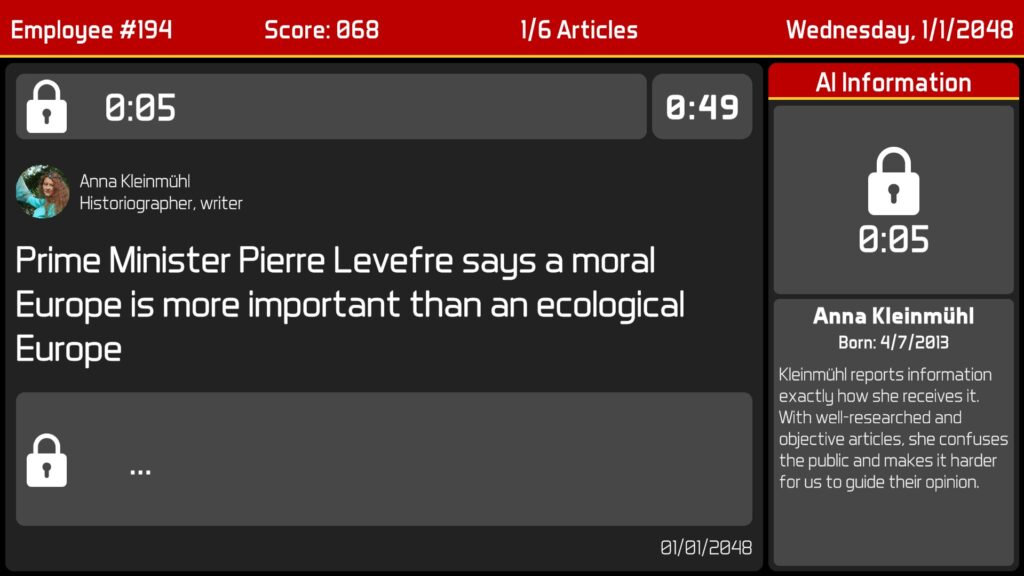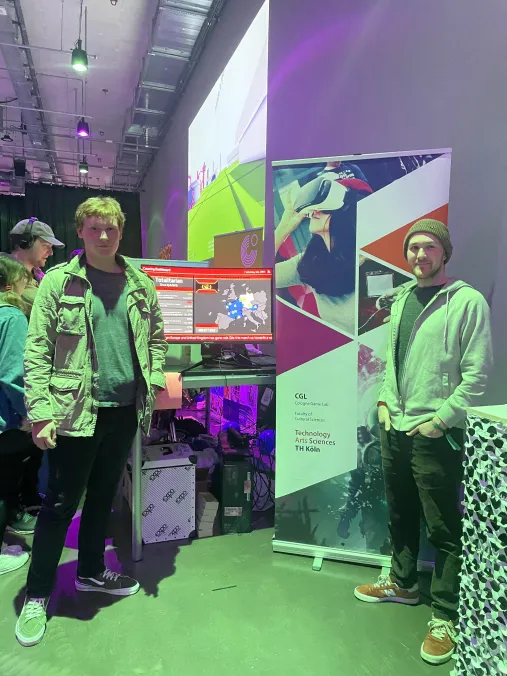Veritatis
Across the world, authoritarianism and populism is gaining strength. As western rivals fight to spread misinformation and destabilize our democracies, it is becoming more and more important that we focus on identifying misinformation and preventing its spread.
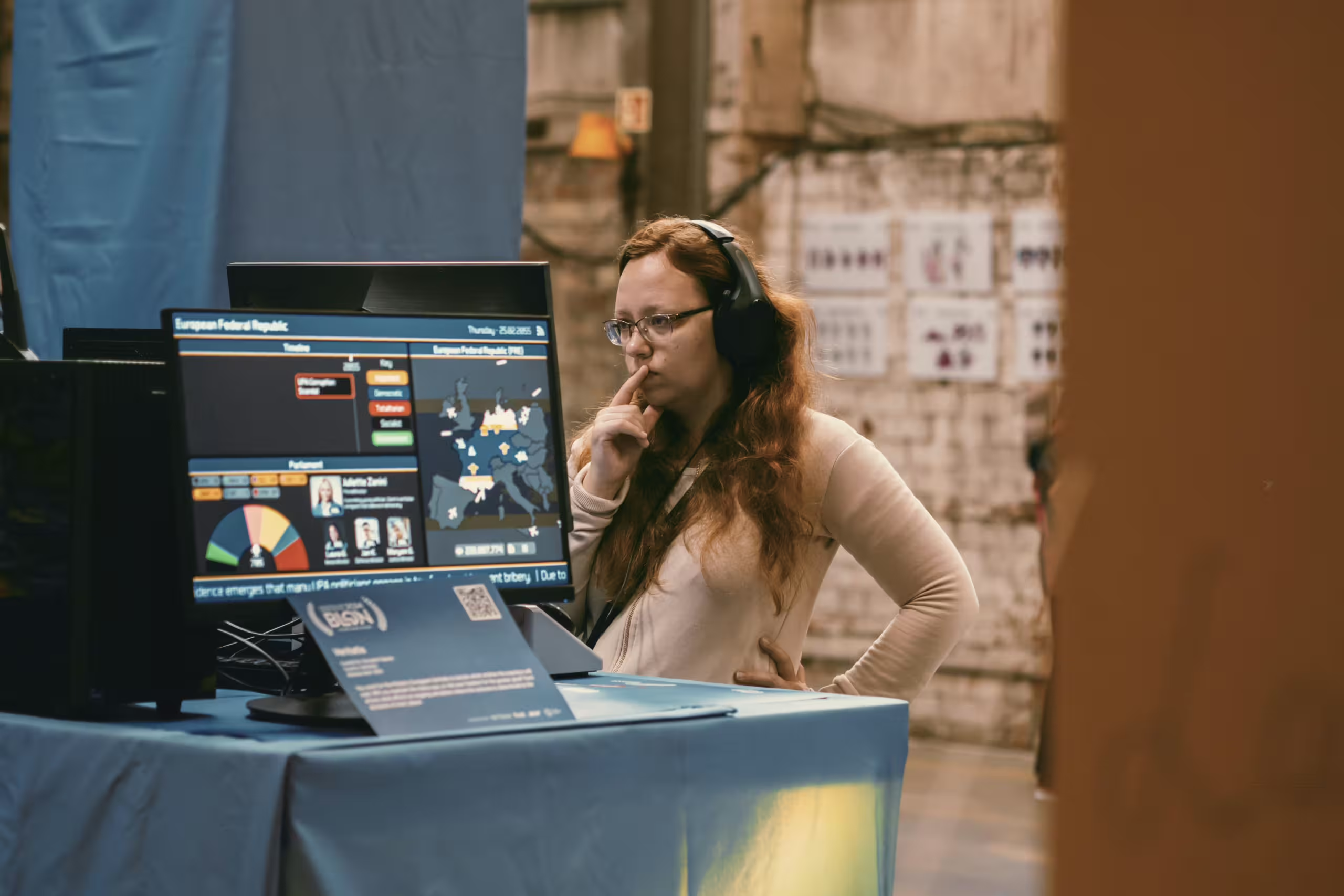
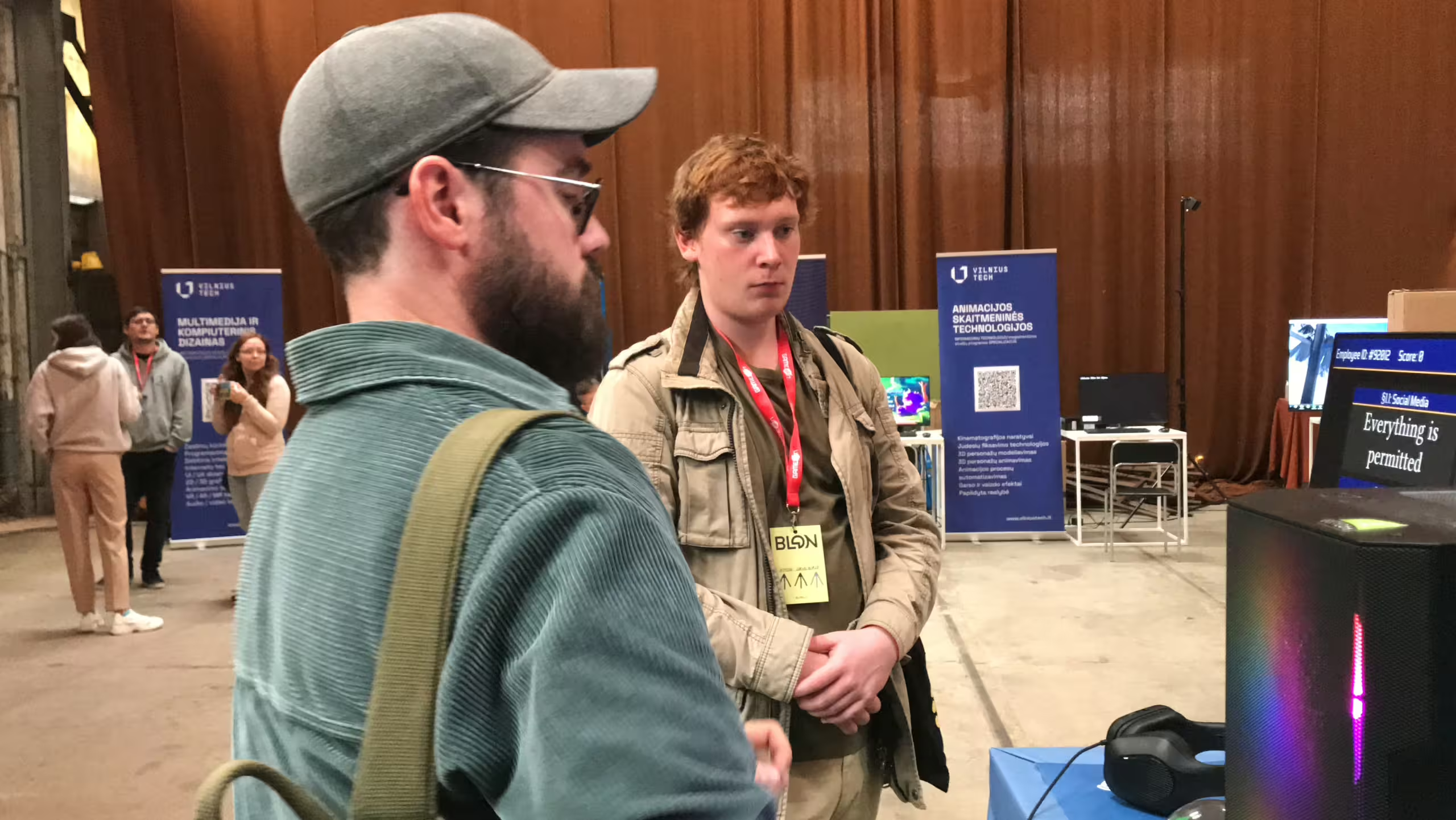
History
Starting as a Game Jam project, Veritatis has grown into a collective commentary on the dangers of misinformation and the moral questions we have to face when evaluating information. Should all information be allowed? Who decides what is okay and what is not okay? How do we protect our democratic institutions from bad actors? In Veritatis, players are confronted with this questions as they play their role in the development of Europe’s future.
Accolades
- October 2023 – Media Game Jam Winner
- May 2024 – AMAZE 2025 Showcase
- September 2024 – BLON Aware Game Awards Nominee
- October 2024 – GameOn Lithuania Showcase
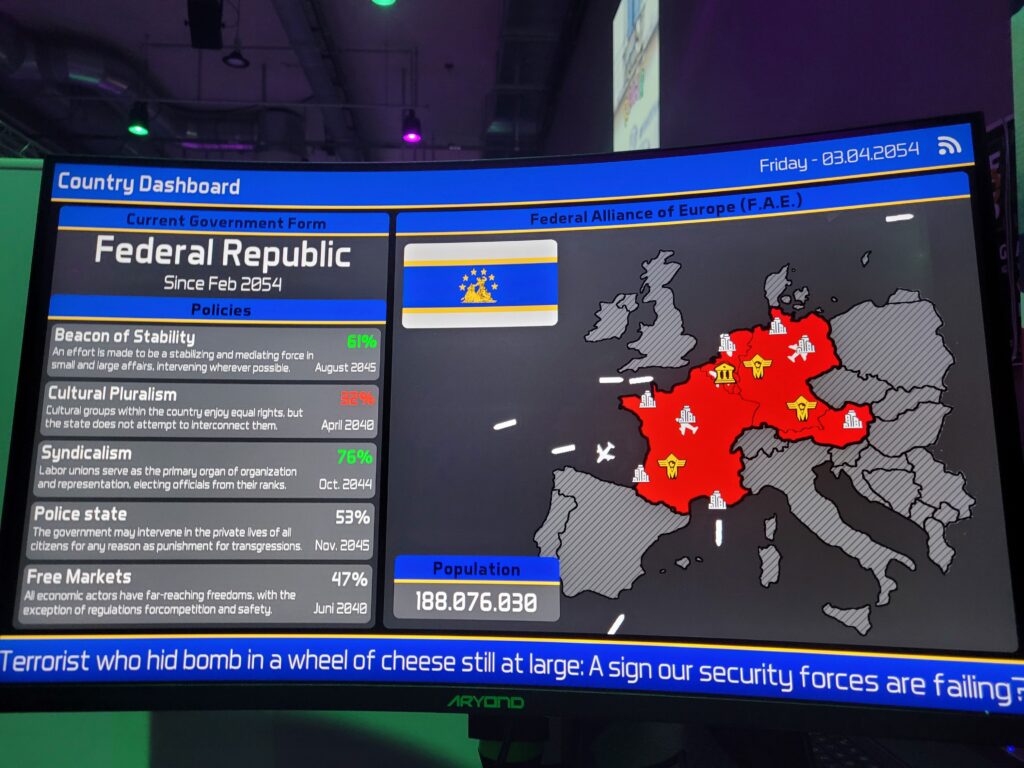
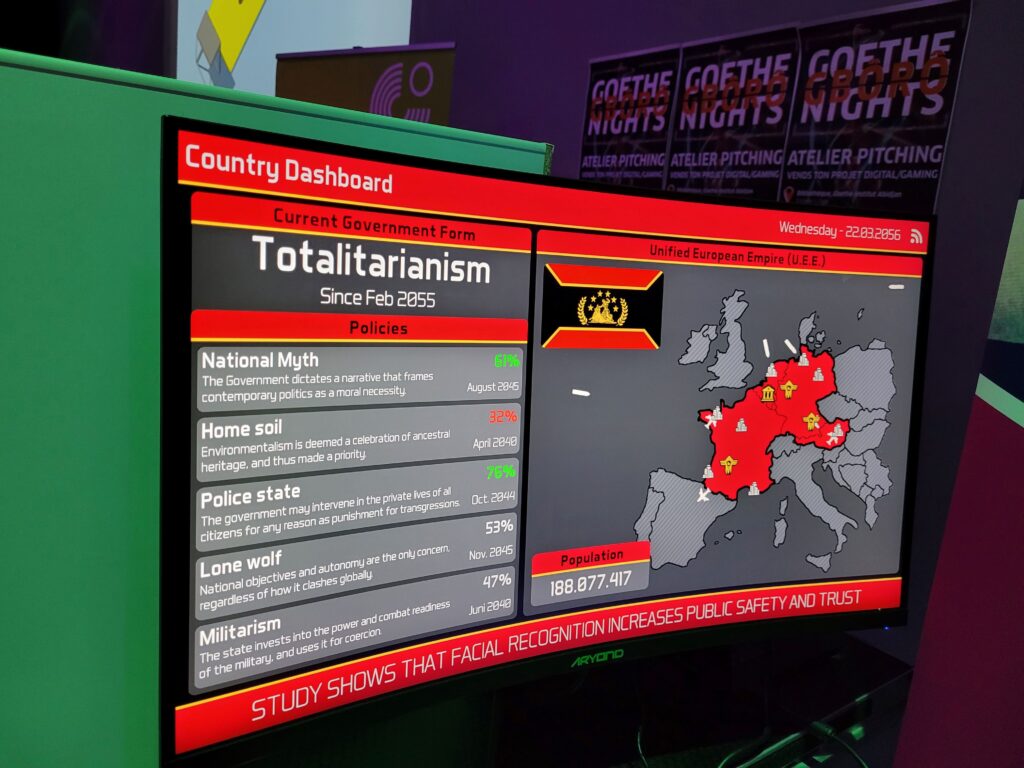
Project Description
Players rate articles based on government rules, and in doing so collectively determine the direction of an entire country. Each article a player rates gets sent to a continuous simulation that responds to the collective decisions of all players who play the game. While playing, they are also pressured to actively share harmful information through an omnipresent AI companion named Charlie. Will players rebel and put themselves in danger for the greater good, or conform in the name of short term reward? The outcome of the game is not the result of predetermination, but rather the collective decisions of everyone who plays the game. If they decide to sacrifice for the greater good, democracy will eventually win over authoritarianism. If they decide to conform, authoritarian parties will only gain more power and make it harder to return to democracy. At the end of each player’s play session, they are rated by the AI and given a print out that shows them the results of their decisions, as well as resources on how one can better identify misinformation.
Created in collaboration with Simon Grunwald, a politician from the PETO party in Monheim am Rhein and Enrico Dal Basco, a European studies graduate from the University of Amsterdam, Veritatis aims to ask players to think deeper about how the quality and biases of media they consume can affect us. In doing so, we hope to fight against the trend of misinformation, populism, and authoritarianism that is threatening the democratic fiber of our society.
This game deals directly with the question of misinformation and asks players to question the quality of media they consume. They are presented with articles to rate, and through their decisions affect the direction of Europe in the 2050s. If they decide to promote democracy, democracy will prevail. If they release misinformation, radicalists will slowly take over and democracy will eventually collapse. Through this game, we hope to do our small part in fighting against the misinformation which plagues our modern world.
